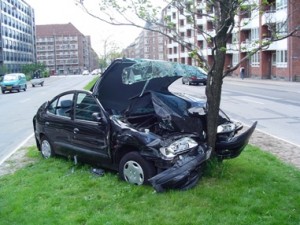Can Insurance Companies Raise Your Rates After an Accident?
Many times consumers are perplexed as to why they have had their auto insurance rates increased after an accident that was not their fault. In Florida, there are actually some statutory guidelines of which consumers should be aware. These guidelines fall under the domain of Fla. Stat. 626.9541 – Unfair methods of competition and unfair or deceptive acts or practices
First, let me make sure there is an understanding of the difference between a general global insurance rate increase and that of an actual surcharge to an individual policy holder. Typically, insurance rates are governed by the Florida Department of Financial Services. When it comes to increasing rates on a global basis for an entire class of policy holders, insurance carriers have specific processes and procedures they are required to follow. What we are discussing here are the incidences when an insurance carrier specifically surcharges* ( adds an additional extra premium) a specific policy holder due to an accident. Fla. Sta. 626.9541 indicates that it is, in general, an unfair act or practice to surcharge a policy holder solely because the insured was in an accident, unless the insurer in good faith believes the insured was substantially at fault in the accident. Insurance carriers fault code each accident for underwriting purposes, hence if an adjuster wrongly indicates an insured is 51% or greater at fault. Sometimes carriers, without substantial fault by their policy holder, chose to pay a liability claim just to avoid a complaint or an expensive legal battle. That is indeed their prerogative to do. However, they should not surcharge the policyholder. Please note the insurer, at the time of notice of any surcharge, is required to advise the insured that he, or she, is entitled to reimbursement of the surcharge amount, if the named insured demonstrates that the operator involved in the accident was, in fact, not substantially at fault. Following, are the specific conditions, outlined in the statutory language, that are associated with an accident surcharge, that if proven true, allow for a challenge and a reimbursement of the surcharge:
(I) Lawfully parked;
(II) Reimbursed by, or on behalf of, a person responsible for the accident or has a judgment against such person;
(III) Struck in the rear by another vehicle headed in the same direction and was not convicted of a moving traffic violation in connection with the accident;
(IV) Hit by a “hit-and-run” driver, if the accident was reported to the proper authorities within 24 hours after discovering the accident;
(V) Not convicted of a moving traffic violation in connection with the accident, but the operator of the other automobile involved in such accident was convicted of a moving traffic violation;
(VI) Finally adjudicated not to be liable by a court of competent jurisdiction;
(VII) In receipt of a traffic citation which was dismissed or nolle prossed; or
(VIII) Not at fault as evidenced by a written statement from the insured establishing facts demonstrating lack of fault which are not rebutted by information in the insurer’s file from which the insurer in good faith determines that the insured was substantially at fault.
These are clear circumstances that, if applicable, are relatively easy to prove. As you can see, even if the first 7 conditions do not apply, the insured still has the ability to provide a written statement, to their insurance carrier, outlining why they were not substantially at fault in the accident.
Of course you will need to be able to have evidence to prove this but that should be easy.
Next, as it relates to accidents an insurer can’t non-renew your policy just because you had one at-fault accident in a 3 year period. Unfortunately if you are a car magnet and have 3 accidents, at fault or not they can non-renew your policy.
When it comes to tickets beware! While one non criminal traffic infraction won’t get your premiums raised or non-renewed it definitely will if its 2 or more in a 18 top 36 month period of time. Of course if it is a speeding violation of 15mph over the limit get ready to, rightfully, pay both at the courthouse and at the insurance premium house of pain.
Here are some key things to remember. First and foremost drive safe! Second know that the way the law as written places a substantial onus on you, the consumer, to carefully review any premium increase, and to determine if you have in fact been surcharged wrongly. Insurance companies can make mistakes when they determine at fault percentages for underwriting purposes. Sadly, many insureds may not have the knowledge to know when they have been surcharged, or even if they realize it, they may not be savvy enough to understand how to challenge a wrongful surcharge. Now that you’re an educated consumer, don’t be afraid to ask questions of your auto insurance carrier and challenge any surcharge that you think is incorrect. Finally, know when you are prepared and know how to approach their carrier with the facts, you can successfully prevail in these disputes!
Share This



